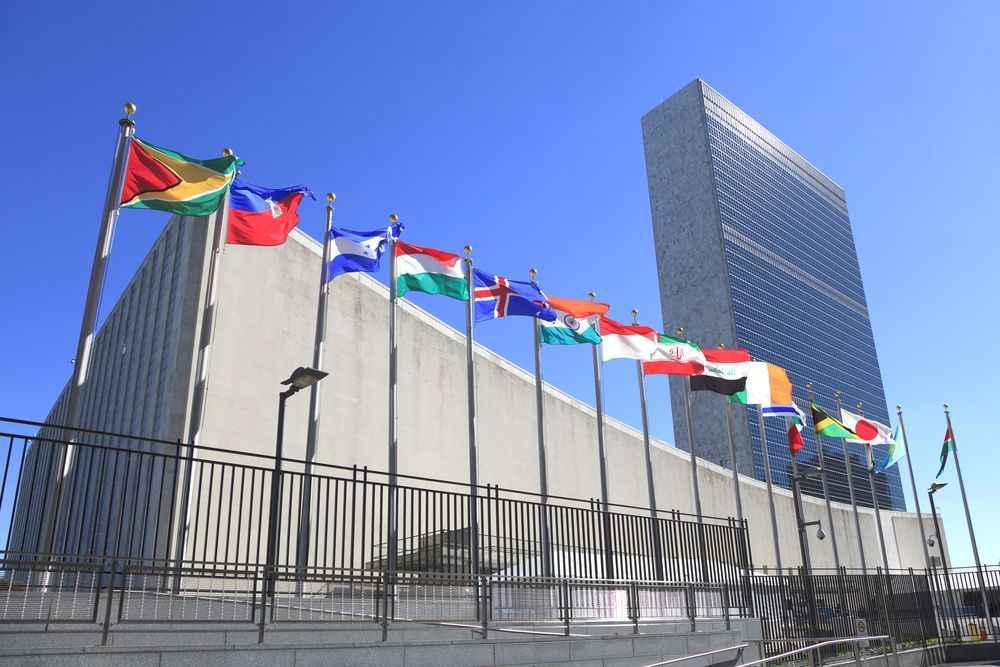The 80th UN General Assembly: A Global Stage with Unmatched Reach
Ryan Parada • September 10, 2025

Once a year, every September, New York City becomes the focal point of international diplomacy as the United Nations General Assembly (UNGA) convenes in Turtle Bay. Leaders from most nations gather to deliver speeches, engage in meetings, and set the tone for the year’s international agenda. It is one of the few moments every year where the global community is literally under one roof, giving each country a platform to voice its priorities, issues, and aspirations.
For the United States, the current host nation and the largest financial contributor (to the tune of ~27% of the total budget) to the United Nations, the General Assembly has always been a critical moment to demonstrate leadership. This year, President Trump has a unique opportunity to stand before the representatives of 193 member states and make the case for his vision of peace, prosperity, and sovereignty.
Unlike any other international meetings, including NATO meetings, or BRICS meetings, UNGA provides an unparalleled stage, to be in front of friends, foe, and those in the middle. For the 74th year in a row, the eyes of the world are on New York. It is a chance not just to speak to diplomats, but to project policy priorities directly to citizens, allies, and rivals alike. Millions of citizens back home are watching, not for the council meetings, or the non-binding votes, but for the fiery, sometimes contentious, and normally pointed speeches by world leaders.
For President Trump, who has consistently championed a foreign policy of “America First” while stressing the importance of respect among nations, this is a critical moment to reinforce that his vision is not isolationist, but cooperative. The General Assembly gives him the chance to articulate how his policies of ending wars, promoting fair trade, and fostering cooperation, are not only good for America but for the world.
One of the defining pillars of President Trump’s foreign policy has been his push to end America’s ‘forever wars.’ From Afghanistan to Sub-Saharan Africa, he has sought to bring troops home, stop the killing, while pressing regional actors to take greater responsibility for their own security. At UNGA, this message will resonate with nations tired of conflict and weary of superpower interventions.
President Trump’s narrative, that peace through strength and strong, real, negotiation is preferable to endless military entanglement, can appeal to both allies and critics. It shows America not as a global policeman, but as a powerful partner willing to negotiate, mediate, and ultimately de-escalate.
Equally important has been President Trump’s insistence on rebalancing trade relationships. Tariffs and tough negotiations with major economies, have defined his approach. Critics see confrontation, but President Trump frames this as fairness, ensuring that American workers are not disadvantaged while promoting trade rules that benefit all sides. This kind of protectionism allows for the USA to lead the world once again in technological advancement, protecting American innovation, and builds new or renewed industries across the U.S.
UNGA provides him the opportunity to explain this philosophy to world leaders directly. Trade disputes are not about pulling away from the world economy, but about creating a level playing field that can foster long-term prosperity and stability. For developing nations in particular, this message, fairness over exploitation, could strike a chord.
Despite his reputation for blunt talk, President Trump has also quietly pursued increased cooperation in areas such as counterterrorism, energy, and technology. He has pushed for stronger ties with allies in the Middle East, promoted cooperation with Central and South American partners to address migration and security, and supported international coordination to confront emerging threats like cyber warfare. These relationships in the Middle East and Central and South America will ensure The U.S. has the right allies to secure a peaceful environment for governments in these regions to build coalitions, secure stability, and grow their economies; all in tandem with the United States.
At UNGA, he can highlight these efforts to show that his foreign policy is not about retreat, but about recalibrating relationships, building coalitions, and equipping nations to focus on their own domestic policy. Cooperation, when grounded in mutual respect and sovereignty, is the cornerstone of his global approach.
This session of the UN General Assembly will be a defining moment for President Trump’s international leadership. After years of controversy, negotiations, and bold moves, the world will be listening very closely. The President can present a vision that combines peace, fairness, and cooperation, an America strong enough to defend its interests but wise enough to recognize the value of partnerships.
The UN General Assembly is, at its core, a stage for ideas. For President Trump, it is a chance to transform his policies from headlines into a coherent philosophy of leadership. If seized effectively, this platform could reinforce America’s role as a leader among nations while reaffirming President Trump’s vision of sovereignty, shared prosperity, and independence.
Ryan Parada is a Partner and the Chief Government Affairs Officer for Connector, Inc. where he oversees both domestic and international portfolios. He is a policy expert for our clients in numerous areas, including national security, energy, and the tobacco industry.
